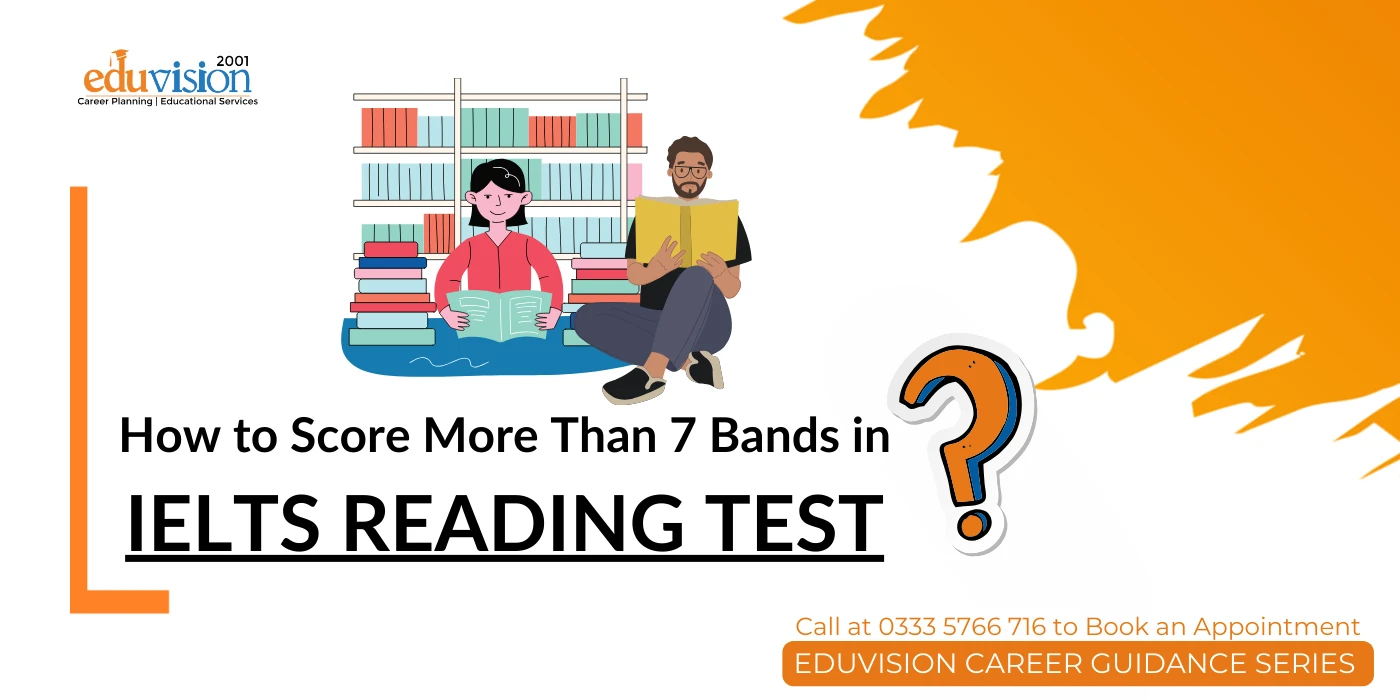The IELTS Reading section is all about your understanding of written text in English language. It tests you for how much you are able to understand the themes and ideas presented in the text, if you can understand the text accurately. If you can make inferences from the text, and if you can specifically scan the information presented in the test.
Format and Question Types
Preparing for IELTS reading section is all about working on the major skills that will be tested and understanding the question types and format!
So, the reading section contains three passages after which a se of questions is asked. These three passages increase in complexity one after the other. The total time to solve all the 40 questions from reading section is 60 minutes.
The types of passages variate between IELTS academic and General Training tests. For the Academic IELTS, you will be given passages out of researches, journal articles, and other academic sources. While for the General training test these passages will come from magazines, newspapers, or other daily life materials. The general training passages are typically easier than the academic test.
The questions after each type can include,
- Matching headings
- Sentence Completion
- Summaries, or flow chart completions
- Matching features
- Idea identification
- Short answers
Tips to Score Higher Bands in IELTS Reading
A band above 7 is generally considered as a good IELTS score. If you score a band of 8 or 9, your band score is then eligible for some of the most competitive environments across the world. Scoring a high band in IELTS requires you to develop a command on all aspecs for English language. For the reading section you need to ensure that you are able to read and understand various types of texts effectively and efficiently. Here are a few tips to help you,
- Develop a General Reading Habit
Developing a reading habit sounds like a very basic tip. However, it has to be stressed because of its impact on your general reading skill and ability. You need to make sure that you develop a habit of reading English newspapers and blogs regularly. Books can also be of great help. If you are to give the Academic Test, you should also develop a habit of reading more complicated text. This could include journal articles, or texts that explain theories or give other concepts. If you can read as a habit, you will eventually be good at skimming and scanning documents. This will help you improve your vocabulary and understanding side by side.
By reading items of different types and variable complexities, it is less likely that you will be surprised by any kind of text that appears.
- Solve Comprehensions
The specific comprehensions for the IELTS past papers are themselves a very effective tool. However, you can go a step ahead. You may find out passages from different texts yourself and then create questions out of them yourself. Moreover, you can access different types of comprehensions across the web and improve your skills. This will prepare you for unforeseen circumstances, while also helping you to navigate the answers for specific questions and major concepts.
- Read the Questions First
If you go through the questions first, there are two major benefits you can gain,
- The questions may give you an idea of the text
- Knowing the questions will help you spot answers and save time
Hence, it is always better to go through the questions first so you can look for all the important concepts and information as you read.
- Manage your Time
Remember! The three passages you get will be of variable length and complexity. The level of difficulty will move from easy to difficult gradually. From a total of 60 minutes, many people would suggest you to give 20 minutes per section. However, you must not set that as a hard and fast rule. To improve your efficiency, you should try to complete the shorter or the less complicated passages in less than 20 minutes. The harder passages may have slightly tricky questions. This approach gives you a rather safer time bracket for those.
- Learn How to Skim a Passage
Skimming is major skill that is test in the IELTS reading. Skimming means reading quickly so that you can get a general idea of what the text is about. To effectively skim an article, you need to be able to read fast. But read fast in a way that you understand the text. Aside from this you should focus on the introductory and concluding parts of the text. In these two sections you are more likely to find the crux of the entire passages. Moreover, if you find some complicated line, only then slow down and read it completely so you can grasp its meaning. Another technique is also to read specific details that could be highlighted or presented in italics. This information can also appear in the form of numbers.
The more diligently you prepare, the better your scores. Best of luck!






.webp)



